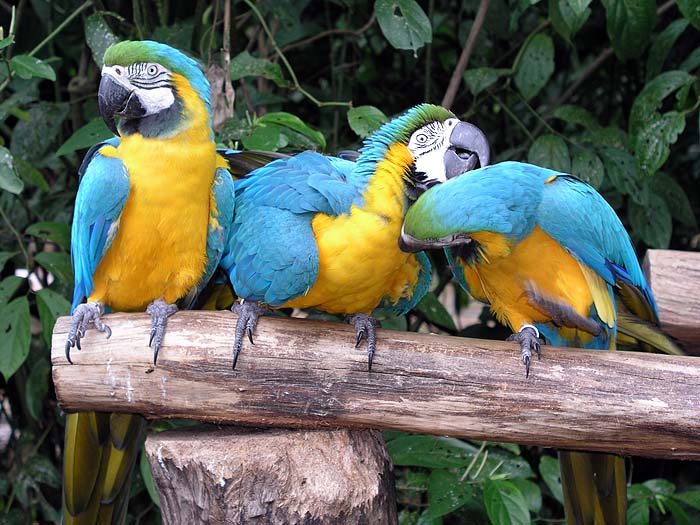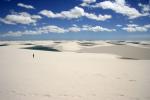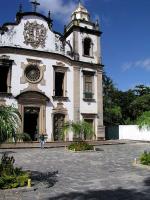In his first programme Michael travels to the far north of Brazil including the colonial city of São Luis before visiting the vast sand dunes and blue lagoons of the ever changing Lençois Maranhenses National Park. He also visits Recife and Olinda, learns to drum, cook and dance capoeira in Salvador and meets the vaqueros (cowboys) who work on the enormous farms in the interior.
The cobbled streets and azulejos (painted tiles) in the old quarters of São Luis give the colonial city real charm and is now a UNESCO World Heritage Site. The city comes alive in the evening with local markets, bars, markets and good restaurants but especially in June when they celebrate their local festival of Bumba Meu Boi. It is also gateway to the spectacular sand dunes and natural lagoons of Lençois Maranhenses. For the intrepid there is an overland trip through the Paranaiba Delta to the sweeping beach oasis of Jericoacoara.
Recife and Olinda
Originally one of the first trading posts with Portugal, Recife has a rich history including the first synagogue in the Americas. It is worth visiting the fascinating Francisco Brennand museum and studio as many of his scultpures adorn the city. A short drive from Recife is Olinda, a UNESCO world heritage site and a former capital. It is a pretty town with cobbled streets, colonial churches and there are examples of wonderfully preserved Brazilian Baroque architecture. It is worth the steep climb up to Igreja Alto da Sé for views of the coastline. From Recife the beautiful and unspoilt islands of Fernando de Noronha are a short flight away.
Cariri region
Heading inland from Recife, the fascinating Carirí region was once home to the megafauna of the Pleistocene era: mastodons, giant sloths and sabre-toothed tigers! There are enormous boulders perched on rounded granite hills, dinosaurs have left fossilised footprints in ancient lake beds, and there are signs of human occupation dating back tens of thousands of years. We can arrange 3 day/2 night guided trips staying at Fazenda Pai Mateus, a simple farm in the huge, arid expanse of the Sertão (expensive but an amazing, off the beaten track, experience).
Salvador
Salvador, the capital of Bahia state, overlooks the vast Todos os Santos Bay. At the heart of the city are the cobbled streets of the Pelourinho, with some of the best-preserved colonial architecture in the Americas. Everything happens on these streets from capoeira to spontaneous samba drum practice to little boys selling fita do bonfim. The rich cultural heritage of the African-influenced religion, Candomblé is everywhere including the excellent restaurants. The Bahian cuisine is famous and the sublime moqueca de peixe is a regional speciality. Carnival time is exceptionally vibrant every February/March where everyone can participate in the street parades and there are some pristine beaches further south.





